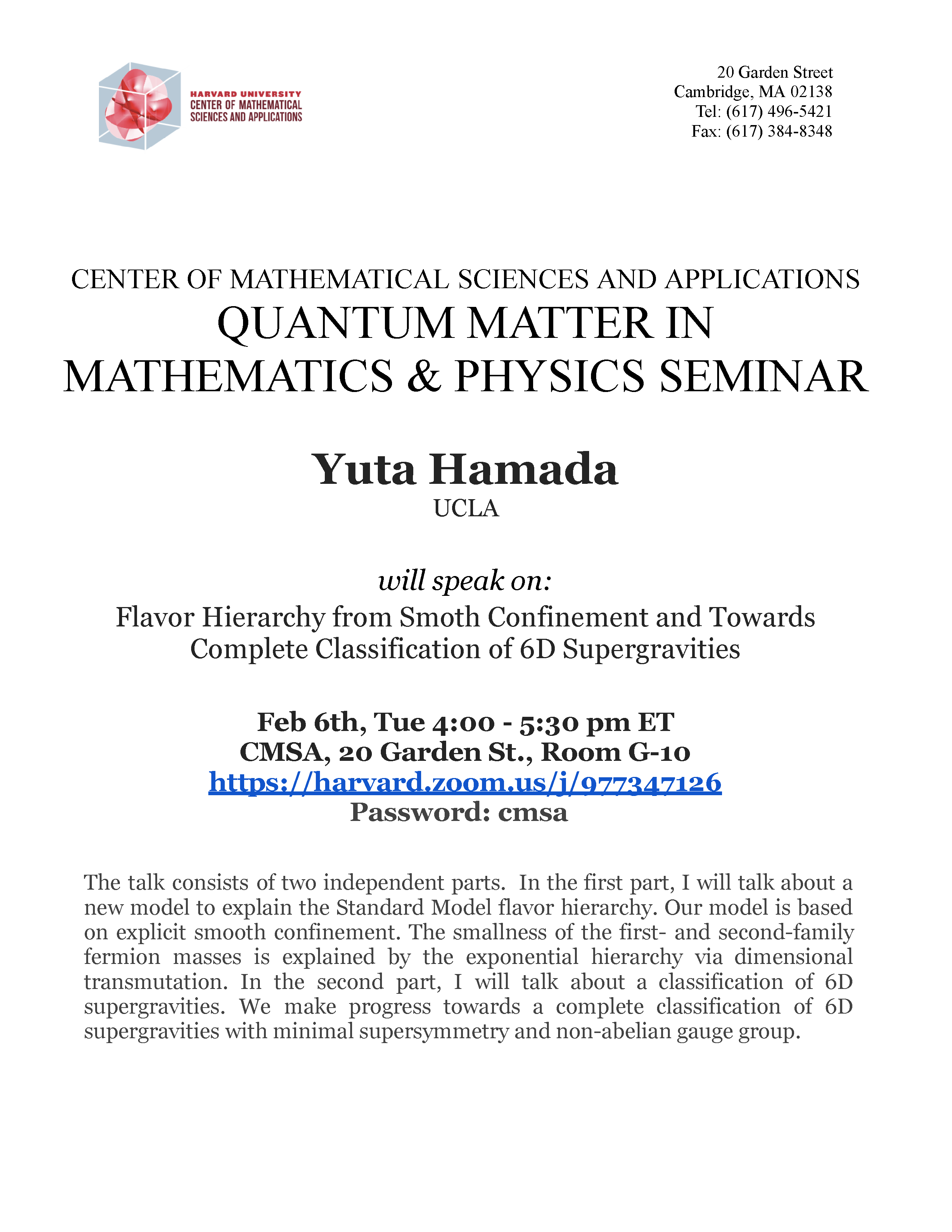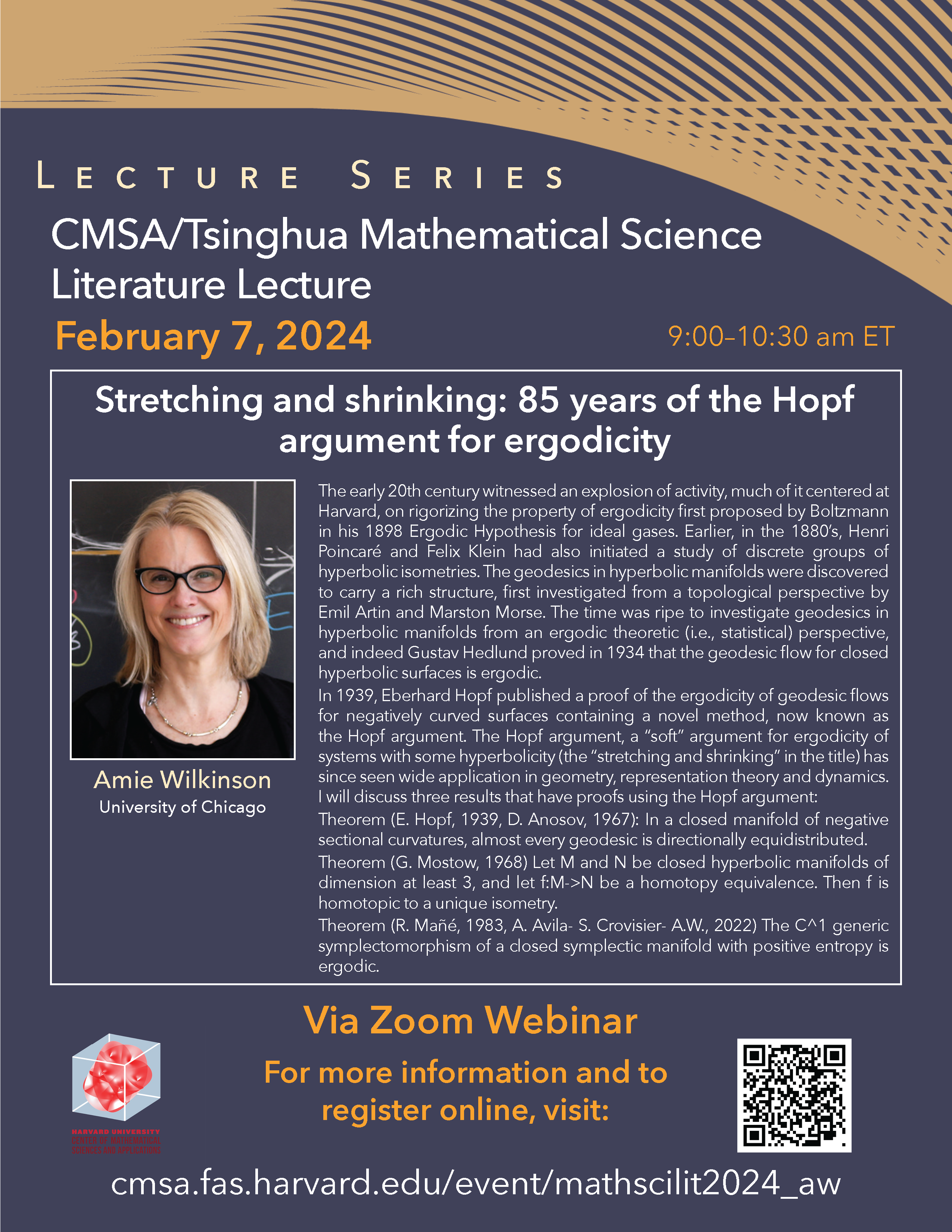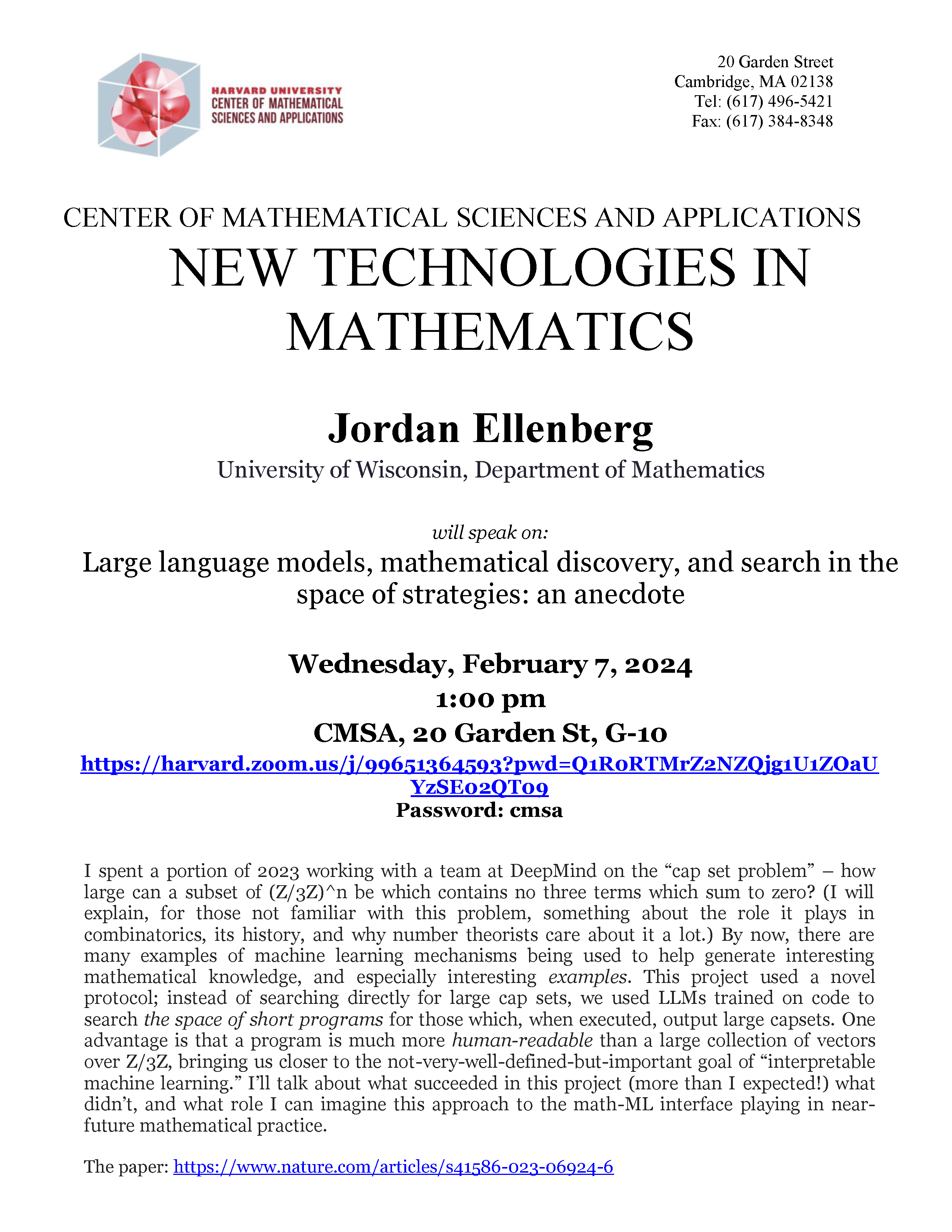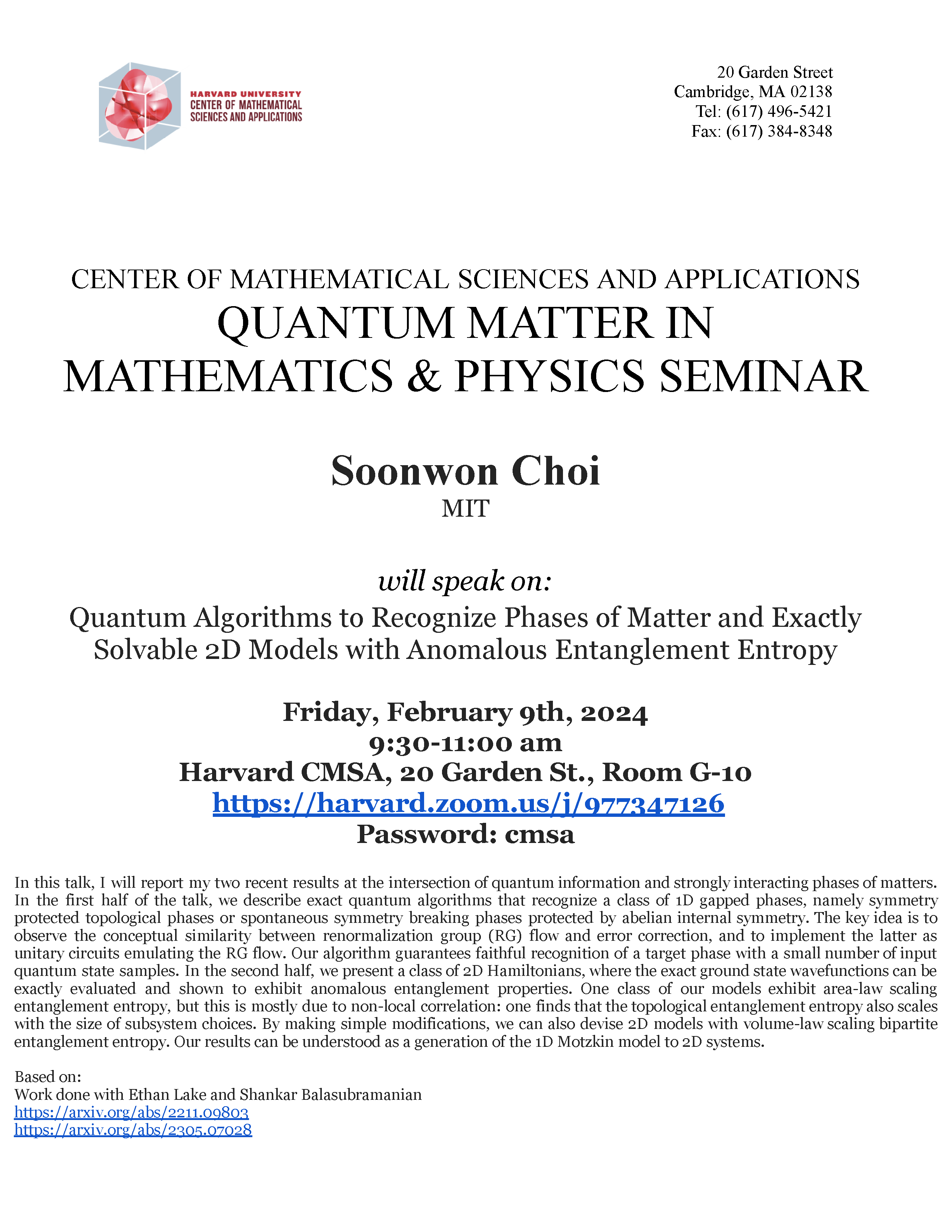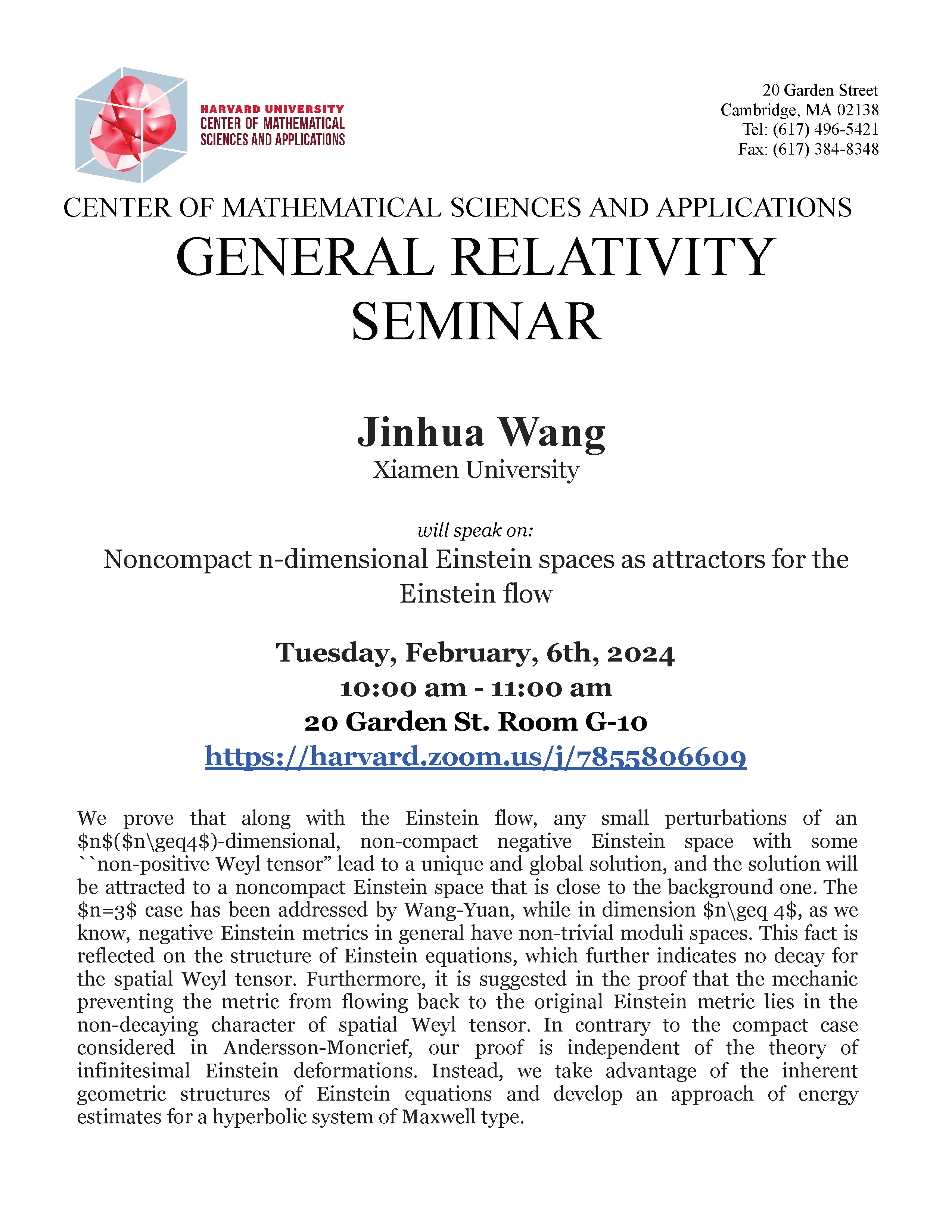
Noncompact n-dimensional Einstein spaces as attractors for the Einstein flow
VirtualGeneral Relativity Seminar Speaker: Jinhua Wang, Xiamen University Title: Noncompact n-dimensional Einstein spaces as attractors for the Einstein flow Abstract: We prove that along with the Einstein flow, any small perturbations of an $n$($n\geq4$)-dimensional, non-compact negative Einstein space with some "non-positive Weyl tensor" lead to a unique and global solution, and the solution will be attracted to […]

